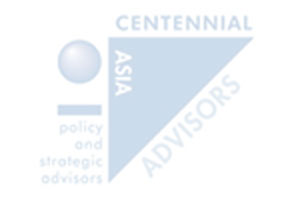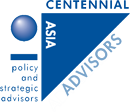- February 22, 2021
- Posted by: admin
- Category: Centennial Asia Insights
No Comments

Highlights from the CAA Weekly Table:
- Asian political risks: China is preparing legislative amendments that will in effect end the limited autonomy enjoyed by Hong Kong since July 1997. Geopolitical risks in East Asia are hotting up, with Taiwan the most salient risk. The situation in Myanmar is inching very close to the point where the military will crack down harshly on the protestors. Any one of these developments would serve to aggravate the current awkwardness in US-China relations.
- The normalisation of economic activity continues apace in Asia. Another quarter of record-high profits in India is fuelling expectations of an upside surprise to growth. Malaysia has loosened mobility curbs across large swathes of the economy, as the authorities prepare to kickstart the inoculation drive. The Philippines is set to follow suit but bureaucratic hold-ups keep the vaccination drive in abeyance.
- Policymakers are stepping up policy responses: Bank Indonesia cut rates, signalling its confidence in the Rupiah. The Duterte administration approved the creation of asset management companies that would help banks offload distressed assets and boost credit growth, which contracted for the first time in more than a decade amid tighter lending standards.
Indonesia: Jokowi still in the driver’s seat, with bright portents for reforms
- Recent surveys point to President Jokowi’s continuing popularity, despite his government’s incoherent response to the pandemic. President Jokowi has put his significant political capital to work with tough attempts to roll back growing Islamisation in Indonesia.
- The economic reform agenda clearly has legs. The draft implementing regulations for the omnibus bill on job creation virtually halves severance pay, which bodes well for the investment climate. Other planks of the reform agenda include the looming establishment of a land bank, the proposed revision of the negative investment list, bureaucratic reforms and tax hikes, all of which will provide a powerful cumulative impact to growth.
Singapore: A prudent Budget that misses the mark on required structural adjustments
- Policy support will significantly taper over the course of the year, with the estimated fiscal impulse reaching a record negative of -6.1% of GDP in FY21 (FY20: 12.5% of GDP).
- The optimal policy choice may have been to maintain a higher level of discretionary fiscal spending that catalyses a more robust recovery in the domestic-oriented sectors, as the economy awaits the pick-up in external demand.
- The longer term policies outlined in the budget statement do not go far enough to address Singapore’s challenges. Structural adjustments are needed to reverse the economy’s poor record on productivity and innovation. But these involve policy choices such as the desired rate of labour force expansion, governance standards within the government-linked corporate (GLC) sector and top-down industrial policy to boost local enterprise including small and medium enterprises which the government does not seem prepared to make currently.
The CAA Weekly is currently available only for our subscribers. Please email contact@centennialasia.com for subscription enquiries.
22-Feb-2021
